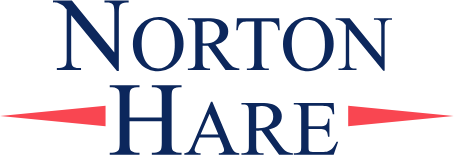I have been too busy to blog recently, which I guess is a good thing. I have collected a whole lot of stories to talk about but may never get to. Here is one that I find particularly weird, disturbing and downright creepy: Citizen drivers in north Texas who were going about their days were directed by police into a parking lot where they were asked to submit to swabbing of their cheeks, blood tests and, if all else failed, breath tests. Here is a link to a news story about this: https://www.nbcdfw.com/news/local/North-Texas-Drivers-Stopped-at-Roadblock-Asked-for-Saliva-Blood-232438621.html.
This is disturbing because this checklane was perpetrated by the government, particularly NHTSA, and the local police (who at first tried to deny involvement), and it was clearly, unequivocally, and completely unconstitutional and illegal. The roadblock was allegedly for “research” purposes. The seizing of people in America by the government is illegal unless there is at least “reasonable suspicion” to believe that they are violating the law. DUI checklanes were narrowly approved by the Supreme Court decades ago, but only for the purposes of catching drunk drivers and under the auspices of keeping the roads safe. There is absolutely no exception to the Constitution that would allow for the stopping of people for “research”. What is the government doing trying to conduct research on its own people by taking swabs of their cheeks (which is how you conduct a DNA test by the way) and sucking out their blood? Creepy is an understatement. Apparently only some drivers were stopped, as opposed to all of them, which is also illegal and unconstitutional. This research is costing taxpayers $7.9 Million. No thanks. But, apparently these “research studies” are being conducted in 30 different cities around America.
The founding fathers of this country would be appalled, in my opinion. While, the government claims these “research” requests were completely voluntary, having police officers on the streets in uniform, with guns and badges, directing law-abiding motorists into a parking lot where their saliva, blood and breath can be subject to a request by the police feels anything but voluntary. It is clear that NHTSA has absolutely no respect for our Constitution and sees it only as an impediment to its agenda. No doubt this “research” will later be used to justify some even more draconian laws and probably expanded cheek swabbing checklanes in the future.
As an aside, this checklane was clearly not about alcohol. The cheek swabs and blood tests are not efficient ways to measure alcohol use in a checklane situation. This is about drugs. Again, my prediction is that NHTSA is attempting to create some statistical data that they can later use to push a legislative agenda to create “legal limits” for all sorts of drugs, including prescription and street drugs. They have pushed about as far as they can with laws concerning driving under the influence of alcohol (none of which has done much to curb the problem of drinking and driving) and now they are looking at drugs. There has been an explosion in the number of people taking medications over the last 10 years and the number of people driving under the influence of drugs has skyrocketed. The solution of some states has been to create legal limits for drugs measured in a driver’s blood or urine. Just like with alcohol, the law wanted a number to make it easier to get convictions, rather than having to prove someone was actually impaired, and it got one – .08. With drugs it will be much easier to get a conviction by letting machines print out number from blood, urine or saliva than demonstrating that a person was not a safe driver because of medication.
Cheek swabbing is the wave of the future and I would imagine this research is also to convince states to add cheek-swabbing and saliva tests to their DUI laws. Kansas added saliva to the tests an officer can request, along with breath, blood and urine, a couple of years ago in anticipation of this coming technology. So, get ready to start seeing this form of evidence collection a lot more often in the near future.
